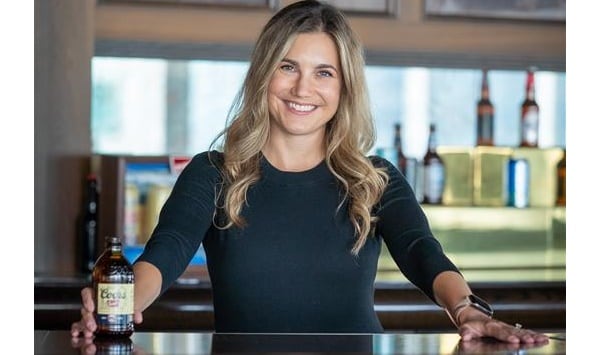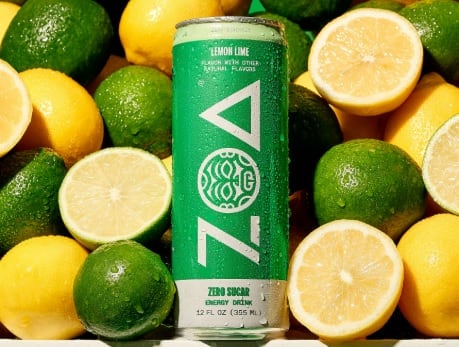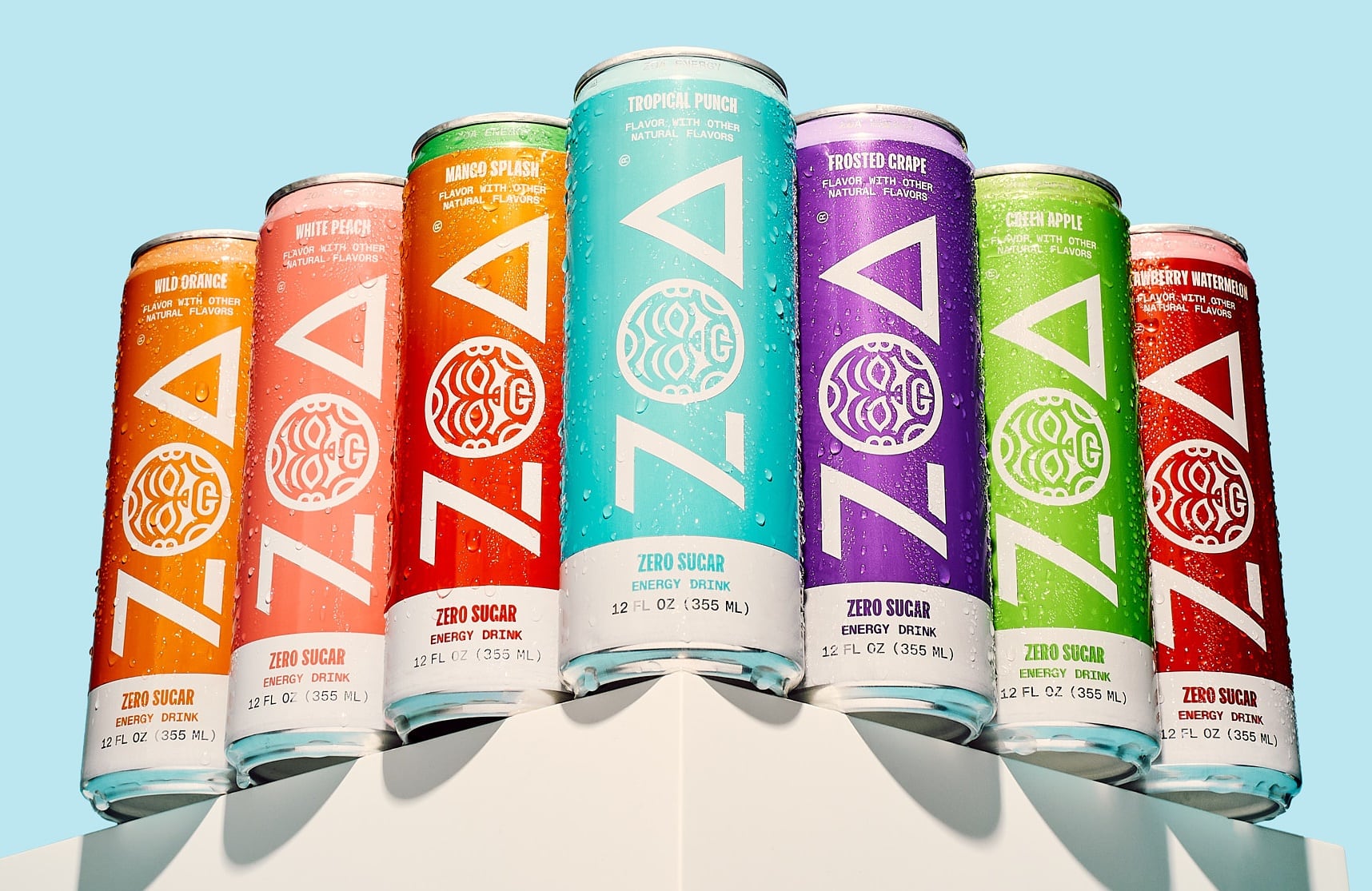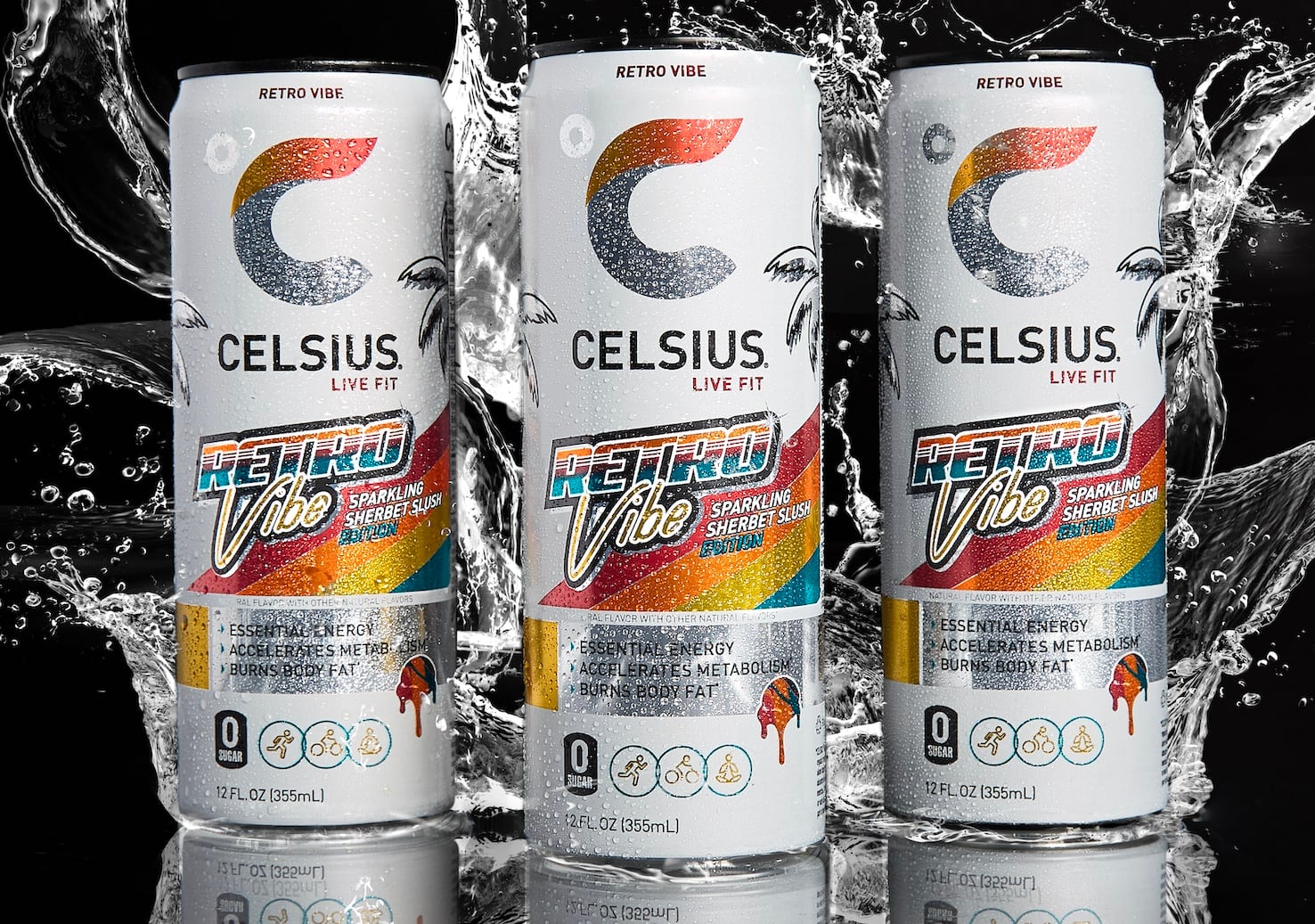Founded in 2021, Zoa Energy has found its place on shelves with bold colorful cans and unique electrolyte, green tea and green coffee bean formula.
Already available at more than 25,000 retail locations and more than 86,000 points of distribution across North America, the brand will now benefit from the might and muscle of Molson Coors’ know-how in the beverage space.
What’s special about the brand? It’s helping drive forward the buzzing ‘better-for-you’ energy space by attracting new consumers to the category with its focus on flavor and drive from Dwayne ‘The Rock’ Johnson. The brand boasts purchase rates of 50% and its ability to attract new consumers to the energy category, with 30% of ZOA buyers new to this space.
Looking at where the brand can go next is Tracey Bien Schenck, senior director of marketing, non-alc brands at Molson Coors.
BD: Introduce us to Zoa!
TBS: Zoa Energy is a better-for-you energy drink that was founded in 2021 by a team that included Dwayne “The Rock” Johnson, Dany Garcia, Dave Rienzi and John Shulman.
What they did is figure out there was a gap in the energy drink market, and they wanted to create a product they’d drink daily themselves.
It’s a better-for-you energy drink that includes green tea and green coffee beans for caffeine and added electrolytes.
And what’s great is it tastes amazing, which can often be a struggle in this category.
What is a ‘better-for-you’ energy drink, anyway?
The energy category has a lot of old school members. The brands that have been around for a long time: your Red Bulls and Monsters.
But they have sugar and artificial ingredients. So what the new energy drink category is about is zero sugar, vitamins, and functional add-ons to caffeine.
That’s the shift that the category is making, and it’s growing a lot: driven by these new better-for-you entrants.
Who is the target market for Zoa?
Our target market is consumers ages 18-35 years old. But it’s also about people moving through life with purpose. People who want caffeine with added benefits: that could be anyone from people out walking the dog, to people walking the red carpet like Dwayne Johnson.

Where did the name Zoa come from?
It’s rooted in the Polynesian word ‘toa’. That means warrior: and that ties back to Dwayne Johnson’s heritage. As they were thinking what the name could be, they wanted to add the ‘z’ and ‘a’. So the name was chosen really intentionally: energy for everyone, from A to Z, all walks of life, at any time of day.
Pick out a favorite Zoa innovation and why…
The category is very flavor driven. Something we did last month was bring back our Lemon Lime flavor.

We had a lot of consumers asking for it online: so we launched it on Amazon and offered it with a new formula that tastes even better. It’s crisp and that leads nicely into the fact we have electrolytes and are refreshing.
We launched that last month and it’s been our most successful Zoa launch online ever.
And it’s a really great way to introduce new consumers into the brand, as we think of flavor as a way to get consumers to choose something new. Flavor is a key driver for people liking a product or even just picking it up to start with.
And of course people want the drink to taste good.
Molson Coors' energy entrant
For Molson Coors (which acquired a majority stake in the company in November for an undisclosed sum) Zoa represents its first foray in energy as it explores opportunities beyond beer.
30% of Zoa buyers are new to the energy space. So – aside from flavor innovation − how are you encouraging them to give it a go?
I think the promise of functional benefits is one of them. A lot of energy drinks typically just have caffeine, and consumers are looking for more than that. For us, that’s electrolytes. But then it’s also about approachable flavors that make it easy to come into, you’re not confused about what it’s going to taste like, and when it’s delicious, that pays off.
But the biggest thing for us is to have a partner and founder like Dwayne Johnson. He’s a multi-hyphenate: that’s a person who’s not just one thing, he’s an actor, athlete, entrepreneur, father… and he brings energy and commitment and he’s one of the most well-known celebs in the world.
Where do you think the energy drink category is going over the next five years?
I would say this added benefit space is really interesting. And that’s not just something that’s only hitting energy: it’s in adjacent categories such as hydration and soda, where you’ve got new entrants offering health benefits.
So in energy, what are consumers looking for that isn’t just the caffeine point? Electrolytes are a core differentiator that sets us apart - it’s not only about energy. And our side panel goes into detail about what we’re offering. That’s a big piece of information when consumers are being conscious about what they’re putting into their bodies.
Now that Molson Coors has a majority stake in Zoa, we’re using our insights team to dive into new areas from a consumer perspective and a needs perspective, because the energy consumer from five years ago is not who they are today. That’s what we’re taking the time to do now.
Molson Coors took that majority stake in November 2024. How does this turbocharge the brand’s potential?
One of the most exciting things is bringing Zoa fully into the Molson Coors family. It’s given us the ability to expand the brand’s ability to scale, using the muscle we already have, the marketing teams, the ability to lean into the distributor network, being able to put the resources and money behind sampling… when people try it they love the taste. Having Molson Coors as the backbone allows us to lean into these things a lot more.
What’s your focus going to be for Zoa over the next year?
Our biggest focus is awareness. There are a lot of new entrants in the energy drink category, and it’s going to be really important to tell more people about this great product and why it’s different. Putting our efforts behind awareness and driving trial is going to be key.
What’s your top tip for building brands?
I love the idea of ”intrapreneurship.” We, at Molson Coors, have a lot of resources and funding and opportunities in the beverage space, but what’s a great opportunity is − as we are bringing in brands like Zoa or partnering with brands such as Fever-Tree − there’s an element of entrepreneurship.
So there’s feeling entrepreneurial, but being able to work in the structure and support in the space of a larger company. I think that’s a key part of success in the beverage space for us.
Seven deadly things
What’s your poison? ZOA White Peach
Worst vice: Sugar!
Worst work mistake: I started on the creative agency side, and that was very much about the details. Throughout my career, I had to haul myself up and see the bigger questions. What are the problems we’re trying to solve here? So I’m constantly thinking about how to balance the details but always be thinking about the bigger picture.
Biggest waste of money: Thinking about ROI is always key. If something is not going to meet goals or have payoff you have to be really critical about if it’s worth it. That applies to partnerships, media, activations, etc.
A brand you admire: Fever-Tree. It’s one we’ve just stared working with. I’m constantly impressed how they’ve built this brand over the years in the US.
When has your pride caused a fall? I always have to think: when is my pride getting in the way? And listen to the team when that happens.
What makes you angry? I don’t ever think of myself as getting angry! But I do get frustrated with a lack of process. It doesn’t have to be big: but any feeling of stagnancy is hard for me.


